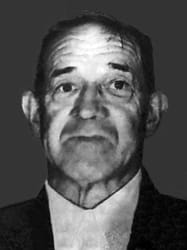The Last Execution That Shook New Zealand

The execution of Walter James Bolton in February 1957 was the last time capital punishment was carried out in New Zealand's history. Bolton, a humble farmer with only a third-grade education, was sentenced to be hanged for the murder of his wife, Beatrice, whom he was officially accused of slowly poisoning with arsenic over an 18-month period. The profound doubts surrounding his conviction were so significant that they later became a key factor in the country's decision to abolish the death penalty.

Over the final 18 months of her life, Beatrice, who suffered from diabetes, was hospitalized at least five times with severe attacks of acute colic, intense vomiting, and dehydration. Her deteriorating health was often attributed to spoiled cream in her tea, which effectively masked the true cause of her illness. Her life ended on July 11, 1956. An autopsy revealed a shocking find: 95 milligrams of arsenic in her internal organs. The coroner concluded that a lethal dose of the poison had entered her system no later than the morning of July 10.
On August 13, detectives Murray and Thomson arrived at the Bolton farm to inform him that his wife had died from arsenic poisoning. Walter, who preferred to be called Jim, immediately denied having any poison on the property, but a quick search proved him wrong. The police found a bag of concentrate for sheep dip, which contained arsenic oxide, exposing his first lie.

Another lie soon followed. Bolton denied the existence of his wife’s diary, which, it turned out, was with her sister, Florence Doherty. Immediately after being questioned, Jim called Florence, and she burned the diary at his request, but she later confessed to the police, further incriminating him.

Another blow to Bolton's case was the testimony of his eldest daughter, Grace Cooke. She claimed her father was having an intimate relationship with Florence Doherty and had tried to bribe her with £50 to keep silent about her mother's death. However, the investigation later found that this money was part of an inheritance specified in Beatrice’s own will. Despite this, police discovered checks totaling £230 that Bolton had used to pay off Florence's debts, including £110 for a Persian rug she received as a birthday gift.

Walter Bolton's trial began on December 26, 1956, and concluded on January 4 of the following year. Throughout the pretrial investigation and the trial itself, Bolton remained silent. The all-male jury unanimously found him guilty. Less than a year after Walter's execution, Florence Doherty committed suicide by ingesting poison.

Despite the verdict, serious questions emerged as early as January 1957, even before the sentence was carried out. If Bolton was the killer, why did he insist on an autopsy for his wife's body, a request that went against the wishes of all other relatives? Why didn't he get rid of the poison and allow police to search his farm without a warrant, which would have given him time to destroy the evidence? Was it plausible that he would be reckless enough to poison his wife at a picnic, risking the lives of his children?

Additionally, Beatrice was a known hypochondriac who brewed her own herbal remedies, raising the possibility of accidental self-poisoning.

Today, criminal psychologists lean toward two alternative theories: either Florence Doherty poisoned her sister to eliminate a rival for Walter's affection, or Beatrice herself voluntarily ingested the arsenic to get her husband's attention and save their marriage, as she knew about his affair with her sister.
